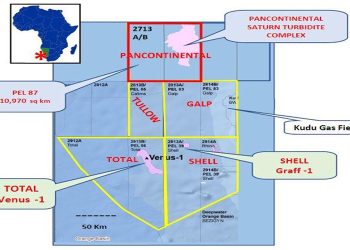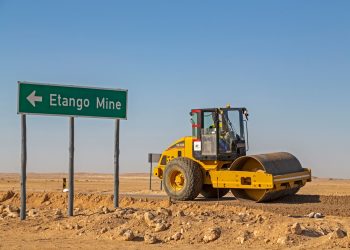
NamPower is set to receive nearly N$2.6 billion in funding which includes a N$280 million grant from the Global Public Good, an official has revealed.
Minister of Mines and Energy Tom Alweendo said this funding will go towards financing the Auas-Kokerboom transmission line and battery storage project.
“NamPower is on the brink of unlocking just under N$2.6 billion, including a N$280 million grant from the Global Public Good, which will be used to finance the Auas-Kokerboom transmission line and battery storage. Such strategic endeavours have the full support of the Ministry,” he said in Parliament on Monday.
This follows NamPower’s pursuit of World Bank funding for transmission line construction and related projects.
Alweendo also noted that it is essential that Namibia begins to diversify its providers of energy, as NamPower has been tasked to complete its 220MW portfolio of generation assets as soon as possible.
“This intent was signalled with the advent of the modified single buyer introduced a few years ago. To date, independent power producers contribute 11% of the total local generation,” he said.
Further adding that “NamPower continues to play the critical role of ensuring that Namibia has a robust transmission network that will not only allow us to get electricity to our people but importantly when we unlock abundant energy from our renewable sources, these networks will allow us to trade electricity with our neighbours.”
In addition, the Ministry plans to announce a 300MW accelerated feed-in-tariff program to bolster Namibia’s journey toward energy self-sufficiency.
“This is crucial not just to ensure that we meet our own energy needs, but also to reduce the burden we place on our neighbours, as they too are energy insecure. Regional energy security is critical for the broader stability of the southern African community,” said Alweendo.
Meanwhile, NamPower intends to construct a 400kV power line from the Auas Substation near Dordabis to the Kokerboom Substation near Keetmanshoop, Namibia.
The line will assist in securing the supply of electricity to Namibia in the future and open up opportunities for selling power to the Southern African Power Pool.
According to the project’s Environmental and Social Impact Assessment (ESIA), cost estimates are approximately N$2.2 million per km for the V-tower system with total cost expected to be around N$990 million.
The report notes that the construction period will be approximately 36 months or two to four years, depending on the construction programme favoured.
Additionally, a Battery Energy Storage System at Lithops Substation will enable NamPower to store energy from renewable sources like solar and wind, ensuring its use even when these resources are unavailable, such as after sunset.







